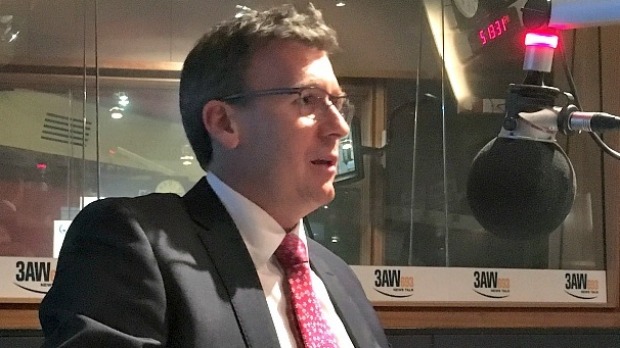-
Tips for becoming a good boxer - November 6, 2020
-
7 expert tips for making your hens night a memorable one - November 6, 2020
-
5 reasons to host your Christmas party on a cruise boat - November 6, 2020
-
What to do when you’re charged with a crime - November 6, 2020
-
Should you get one or multiple dogs? Here’s all you need to know - November 3, 2020
-
A Guide: How to Build Your Very Own Magic Mirror - February 14, 2019
-
Our Top Inspirational Baseball Stars - November 24, 2018
-
Five Tech Tools That Will Help You Turn Your Blog into a Business - November 24, 2018
-
How to Indulge on Vacation without Expanding Your Waist - November 9, 2018
-
5 Strategies for Businesses to Appeal to Today’s Increasingly Mobile-Crazed Customers - November 9, 2018
New govt plan to break the welfare trap
Speaking at the National Press Club on Tuesday, Porter said the Turnbull government was determined to reduce intergenerational welfare dependency.
Advertisement
Mr Porter has prised open government coffers in an attempt to entice stakeholders, academics, state and territory governments and non-government groups to pitch their ideas to help groups at risk of falling into the welfare trap, get jobs.
The decision to outsource potential solutions is based on a New Zealand model, created to intervene and address at-risk groups quickly.
But Mr Porter said as well as the policy targeting approach, “the data we now have provides very strong reasons to question the effectiveness of some of the fundamental, overarching architecture of our welfare system”.
Social Services Minister Christian Porter told the National Press Club yesterday the policy of mutual obligation was “utterly outstanding” and an expansion was worth exploring.
“The real task is to continuously engage in an honest, evidence-based assessment as to when an existing welfare spending approach improves an individual’s prospects for a better life”, the Minister said.
“It’s enabling people to do that – not just helping them out with handouts”.
A new report by PricewaterhouseCoopers has found young carers, young parents and some students are most at risk of getting caught in a lifetime of welfare.
On young carers, nearly half of the 11,000 getting welfare are predicted to remain on benefits over the next 70 years, costing $5.2bn.
The report shows nearly 30 per cent of students who have received study payments will draw on the system at some point over the next 60 years.
‘The end result has often been that people are no longer in a position to comply and they fall away, ‘ she told reporters in Canberra.
For example, there are 4370 teenage parents in the welfare system at present, of whom 12 per cent are forecast to access income support in each year for the rest of their lives. Our targets will be measured on how more self-reliant members of these targeted groups become. “But we’re not setting targets in that respect”.
The Minister insists welfare is failing people.
The government’s new investment approach to welfare is a revolutionary change, harnessing prevention to make future savings and improve lives. But I think, if the Government really believes in the welfare for individuals and getting people out of the cycle of poverty, they shouldn’t gut Medicare, they should properly fund our schools, they should properly fund child care.
Porter made the comments after a speech outlining his plan to reduce intergenerational welfare dependency, which involves using actuarial analysis to unpack the lifetime patterns of people receiving welfare payments and benefits.
Social Services Minister Christian Porter said while Newstart was a “modest payment”, boosting it by $53 a week as proposed by the Australian Council of Social Service would cost taxpayers an extra $7.7 billion.
He says, without further restraint, the welfare bill by 2026 would expand to $277 billion a year.
Advertisement
“We are trying to move people out of the system”, Mr Porter said on Tuesday.





























